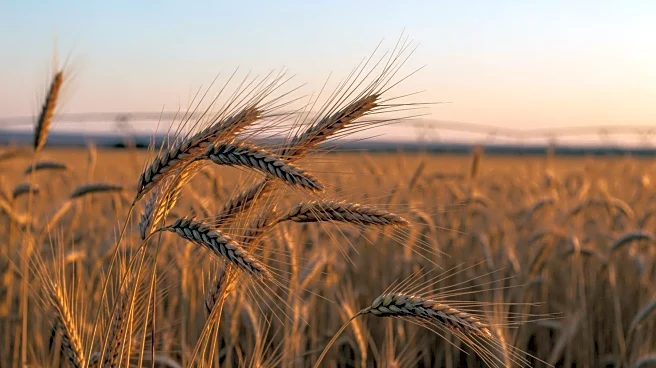Rapid Read • 7 min read
The Kilter AX-1 robot, developed by Norwegian company Kilter Systems, offers a groundbreaking approach to weed control with its high-precision herbicide application technology. The robot uses artificial intelligence to detect and target weeds, reducing herbicide use by up to 95% and increasing crop yield by 35%. The AX-1 is designed for vegetable cultivation and employs 'single drop technology' to apply herbicide droplets directly to weeds, minimizing crop damage and environmental impact.
AD
The Kilter AX-1 represents a significant advancement in sustainable agriculture, addressing the challenges of conventional weed control methods. By reducing herbicide use, the robot contributes to environmental conservation and promotes healthier crop production. Its precision technology offers a solution to labor shortages in agriculture, as manual weeding becomes increasingly costly and difficult to source. The AX-1's ability to improve crop quality and yield has the potential to enhance food security and support sustainable farming practices.
Kilter Systems plans to expand the AX-1's application to additional crops and regions, with ongoing testing in various European countries. The company is working to obtain necessary certifications for the robot's use in the Netherlands and other parts of Europe. As the technology gains traction, it may lead to broader adoption of precision agriculture tools, driving innovation in the industry. Kilter Systems aims to establish a distribution network to facilitate the AX-1's availability to farmers seeking efficient and sustainable weed control solutions.
The development of the AX-1 highlights the role of technology in transforming agricultural practices, offering a glimpse into the future of farming. It underscores the importance of balancing environmental conservation with agricultural productivity, providing a model for integrating AI and robotics into traditional farming methods. The robot's success may inspire further research and development in precision agriculture, paving the way for more sustainable and efficient food production systems.
AD
More Stories You Might Enjoy












